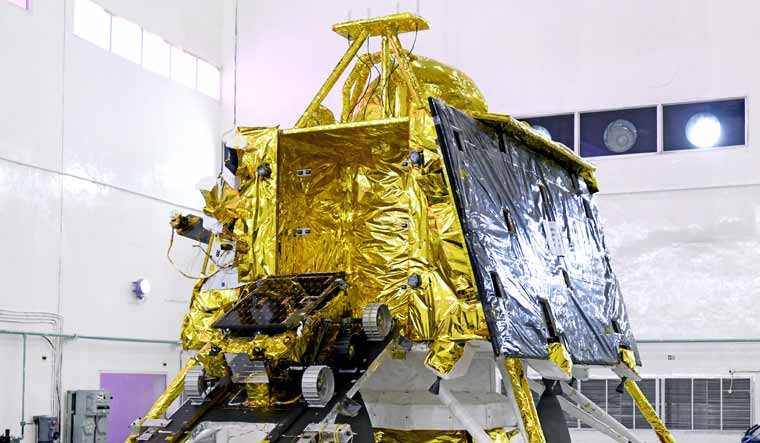
Asserting that problems, mishaps and surprises only sharpen research, French physicist and Nobel laureate Serge Haroche on Friday said India should look ahead after its lunar expedition suffered a snag while attempting a historic landing on the uncharted south pole of the Moon.
Haroche, 75, who won the Nobel Prize for Physics in 2012 for ground-breaking experimental methods that enable measuring and manipulation of individual quantum systems, is in India for the 'Nobel Prize Series 2019', the third such series in the country.
The French scientist said, the Chandrayaan-2 mission is a big science project and in such projects the government generally remains very much involved.
"It is a kind of prestige project which generally involves a lot of money expenditure and when you have a failure or mishappening of course there is a lot of disappointment because a lot of media attention is attracted," he said.
"When I did my research nobody was interested until I got the result... and I think this kind of problems, this kind of mishaps and surprises only sharpen research," Haroche said when asked about India's lunar expedition which suffered a snag.
The Indian Space Research Organisation's (ISRO) plan to soft-land the Chandrayaan-2's Vikram module on the lunar surface did not go as per script in the early hours of September 7, with the lander losing communication with ground stations during its final 2.1-km descent.
Haroche said things like these are normal for research as he advised India to look ahead.
"The question is what will happen next and this is not just a scientific issue. It is a political and financial issue. One would have to recognise where was the problem then fix it and try again," the French scientist said.
About his experience on interaction with Indian students, he said, "They are very talented and very knowledgeable, asking lots of good questions."
"We met students, officers and teachers in Punjab and discussed a lot of things related to education including the best way to teach science, the challenges that arise due to various kind of problems. We had very intense and interesting discussion and exchanges," the Nobel laureate said.
Asked about what would he advise to Indian research students, Haroche said it would be that they don't have to know everything.
"I would like to tell the students to first of all choose a subject for which you have a passion and then pursue it because it is very difficult for anyone, not only in India but everywhere because of the very high level of competition.
"Work in a group so that you can exchange information, take advantage of advices and for young scientists I think it is always good to go abroad after the PhD so that they get the exposure towards many things, the different ways to doing science and then hopefully be able to come back here and take their research forward," he said.
An exhibition, as part of the world premiere of the third edition of Nobel Prize Series India-2019 highlighting how Nobel laureates made the world a better place, was inaugurated in Mohali on Wednesday.
Besides Haroche, Kailash Satyarthi, recipient of the 2014 Nobel Peace Prize, Laura Sprechmann, CEO for Nobel Media AB, Rahul Mehta, founder of the philanthripic organisation Mehta Family Foundation which is focused on education, children, and healthcare, interacted with students as part of the Nobel Prize Series India-2019.

No comments:
Post a Comment